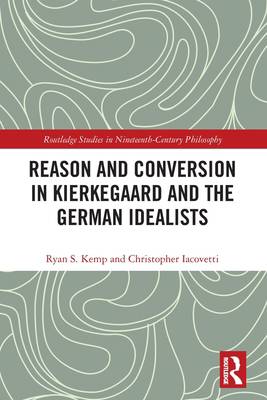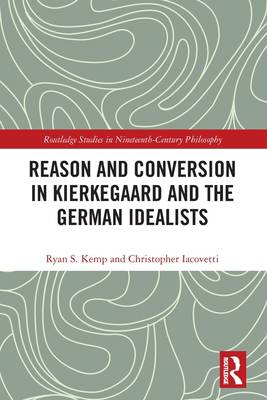
- Retrait gratuit dans votre magasin Club
- 7.000.000 titres dans notre catalogue
- Payer en toute sécurité
- Toujours un magasin près de chez vous
- Retrait gratuit dans votre magasin Club
- 7.000.0000 titres dans notre catalogue
- Payer en toute sécurité
- Toujours un magasin près de chez vous
Description
In his late work Religion within the Boundaries of Mere Reason, Immanuel Kant struggles to answer a straightforward, yet surprisingly difficult, question: how is radical conversion--a complete reorientation of a person's most deeply held values--possible? In this book, Ryan S. Kemp and Christopher Iacovetti examine how this question gets taken up by Kant's philosophical heirs: Schelling, Fichte, Hegel and Kierkegaard. More than simply developing a novel account of each thinker's position, Kemp and Iacovetti trace how each philosopher formulates his theory in response to tensions in preceding views, culminating in Kierkegaard's claim that radical conversion lies outside a person's control. Kemp and Iacovetti close by examining some of the moral-psychological implications of Kierkegaard's account, particularly the question of how someone might responsibly relate to values that have, by their own admission, been acquired in contingent and accidental fashion.
Spécifications
Parties prenantes
- Auteur(s) :
- Editeur:
Contenu
- Nombre de pages :
- 182
- Langue:
- Anglais
- Collection :
Caractéristiques
- EAN:
- 9780367517458
- Date de parution :
- 01-08-22
- Format:
- Livre broché
- Format numérique:
- Trade paperback (VS)
- Dimensions :
- 152 mm x 229 mm
- Poids :
- 267 g

Les avis
Nous publions uniquement les avis qui respectent les conditions requises. Consultez nos conditions pour les avis.






